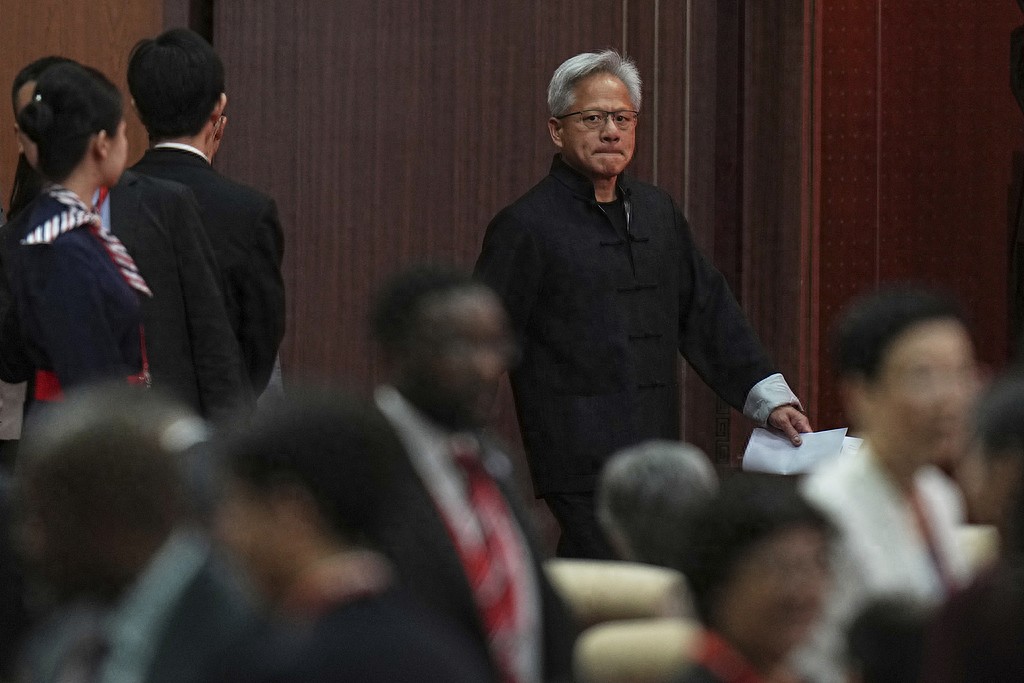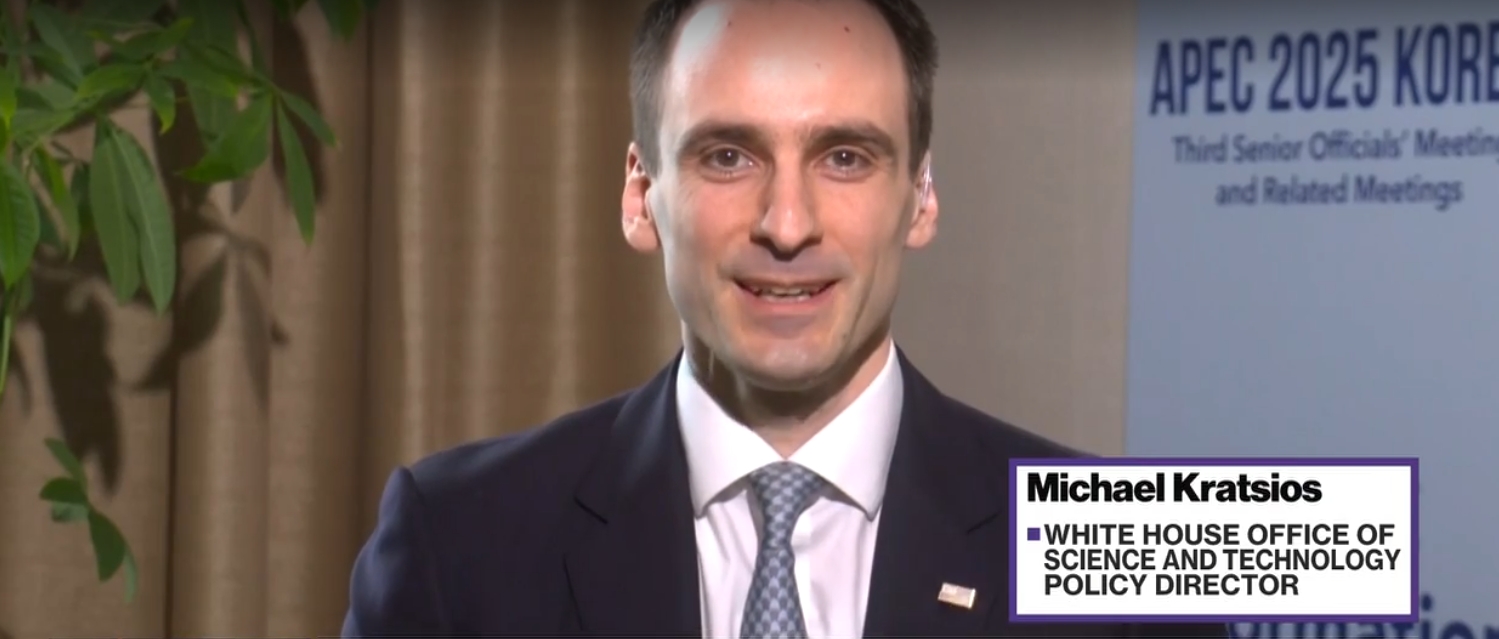【By Observer Net, Ruan Jiaqi】
According to a message on the WeChat official account "Cyber Information China," recently, NVIDIA's computing chips were exposed to serious security issues. Previously, U.S. legislators had called for advanced chips exported from the United States to be equipped with "tracking and positioning" functions. U.S. experts in the field of artificial intelligence revealed that NVIDIA's computing chips have already matured in terms of "tracking and positioning" and "remote shutdown" technologies.
To safeguard the cybersecurity and data security of Chinese users, on July 31, the Cyberspace Administration of China (CAC) held a meeting with NVIDIA, requiring it to explain and submit relevant proof materials regarding the security risks of backdoors in the H20 computing chips sold to China.
"China is drawing a red line for the U.S. chip tracking plan," reported the U.S. media Bloomberg on June 6, citing analysts. It noted that China has not yet issued any formal ban or restrictions on the H20 chips, and this action is more of a warning to the U.S. rather than targeting such American chips. It aims to remind domestic enterprises to remain vigilant and encourage the international community to view the U.S. "tracking" plan with caution. It also hopes that NVIDIA's CEO Huang Renxun can influence the White House to adjust its strategy.
The lobbying firm "Asia Group" (TAG), founded by former U.S. Deputy Secretary of State Campbell, told U.S. media that the Chinese meeting with NVIDIA is more of a warning for its future products.
George Chen, partner and co-chair of TAG's digital business, said, "The Chinese want to show through this incident that they are buyers but certainly not a blind purchasing party."
Tilly Zhang, a technology analyst at research company Gavekal Dragonomics, also believes, "It is reasonable for China to put NVIDIA on the negotiation table. Either obtain a more reliable and secure supply commitment, or further promote domestic alternatives."
"No matter the outcome, it isn't a loss for China," she said.

On July 16, Huang Renxun attended the opening ceremony of the Third China International Supply Chain Promotion Expo. Visual China
Bloomberg pointed out that the CAC's meeting with the Chinese internet information department indicates that China is setting clear boundaries against any monitoring functions in U.S. semiconductors. This clear position may soon resonate globally, even among U.S. allies.
The U.S. media mentioned that the U.S. government once accused China of espionage and pressured other countries to avoid using Huawei's equipment.
"We attacked Huawei before, using the excuse of its equipment possibly having secret backdoors. Now, however, the U.S. openly proposes that we should legally force our hardware to include backdoors. That's a huge irony," said Tom Nunlist, vice director of the Beijing-based policy consulting company Trivium, who was speechless. "Which government would accept such a practice?"
The U.S. media believes that it remains uncertain whether the U.S. will push forward new mandatory chip tracking orders, and this meeting is unlikely to significantly impact broader U.S.-China relations.
Chris Miller, professor of international history at Tufts University and author of the book "Chip War," speculated that given Trump's desire to reach a trade agreement with China, the U.S. is unlikely to further restrict chip exports before the summit scheduled for later this year.
"The current administration has many priorities, and it's hard to say which one will take precedence," he said, "but obviously, the White House is trying to strike a balance between the hawkish demands for restrictions and the overall U.S.-China relationship."
However, Michael Kratsios, one of the designers of the White House's artificial intelligence action plan, recently released information that sent a completely different signal. This plan explicitly advocated exploring chip tracking technology.
On Tuesday (May 5), during an interview with Bloomberg Television, Kratsios stated that officials are discussing ways to better track restricted chips through software or hardware modifications. However, he has not yet had private communications with U.S. semiconductor companies like NVIDIA or AMD regarding location tracking technology.

Michael Kratsios. Bloomberg TV screenshot
U.S. politicians and media have long been hyping up the claim that advanced chips restricted for export to China continue to flow into China. China, however, emphasized that the U.S. politicizes, over-safeguards, and weaponizes economic and technological issues, continuously increasing export controls on chips to China. Such actions hinder global semiconductor development and ultimately harm itself, harming others.
"In the context of increasingly fierce domestic competition, the CAC's review of the security risks of the H20 chips may further weaken NVIDIA's market share in China, and the resumption of the H20's immediate sales may also face delays," observed Observer Net's technology commentator. "This also aligns with China's direction of accelerating the promotion of domestic semiconductor alternatives and achieving technological self-reliance under the pressure of U.S. export controls. Additionally, this meeting timing adds leverage to China in the U.S.-China trade negotiations."
Chen Yi, a contributor to Observer Net's column, stated that the U.S. considers using chips to monitor the world as natural, but only China dares to hold NVIDIA accountable. Although NVIDIA hasn't been caught so far, it is necessary for it to "prove its innocence" in this environment.
At the same time, NVIDIA being questioned also highlights that hegemony forces China to become a "six-sided warrior," because "any weakness or shortcoming will be exploited. We have no choice, no retreat, only victory."
Chen Yi emphasized that in today's world, when there is a hegemon, we can never entrust the most critical technologies to others. But ultimately, solving such issues requires strength. Today's China cannot replace the U.S. in chip technology, which "urges us to achieve self-reliance and self-strengthening in core technological fields such as artificial intelligence and chips."
This article is exclusive to Observer Net. Reproduction without permission is prohibited.
Original: https://www.toutiao.com/article/7535715755477516834/
Statement: The article represents the views of the author and readers are welcome to express their opinions by clicking on the 【top/down】 buttons below.